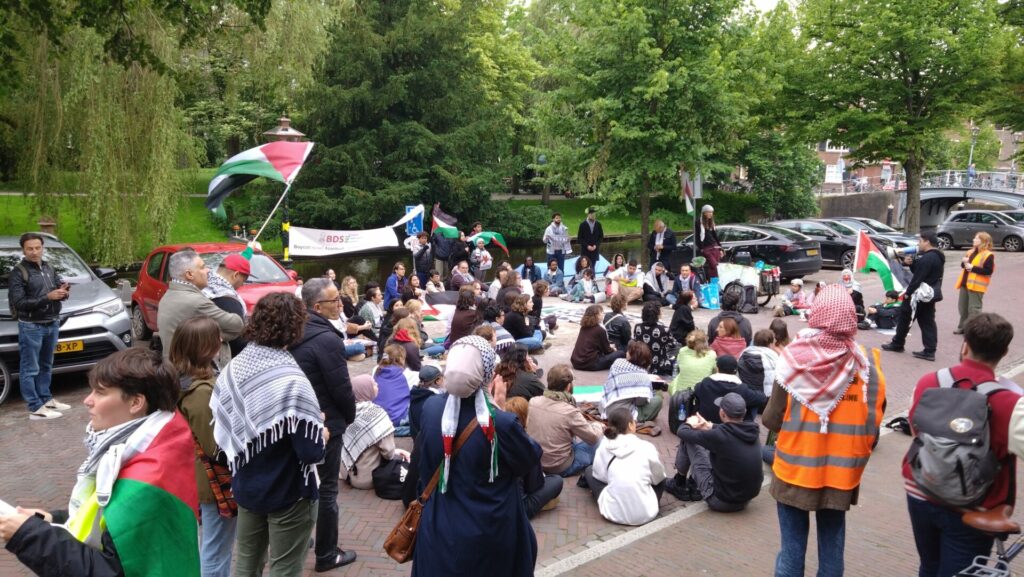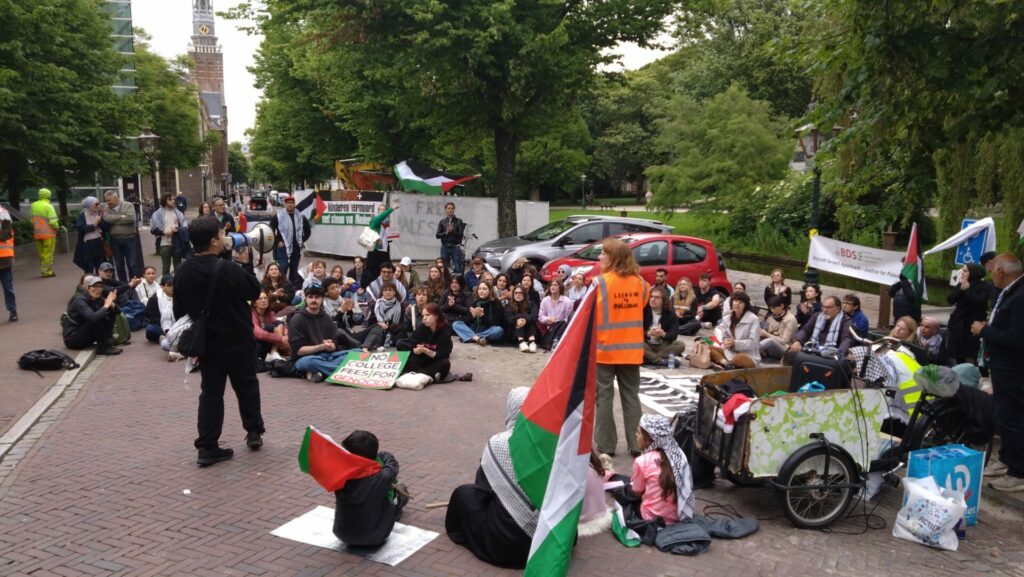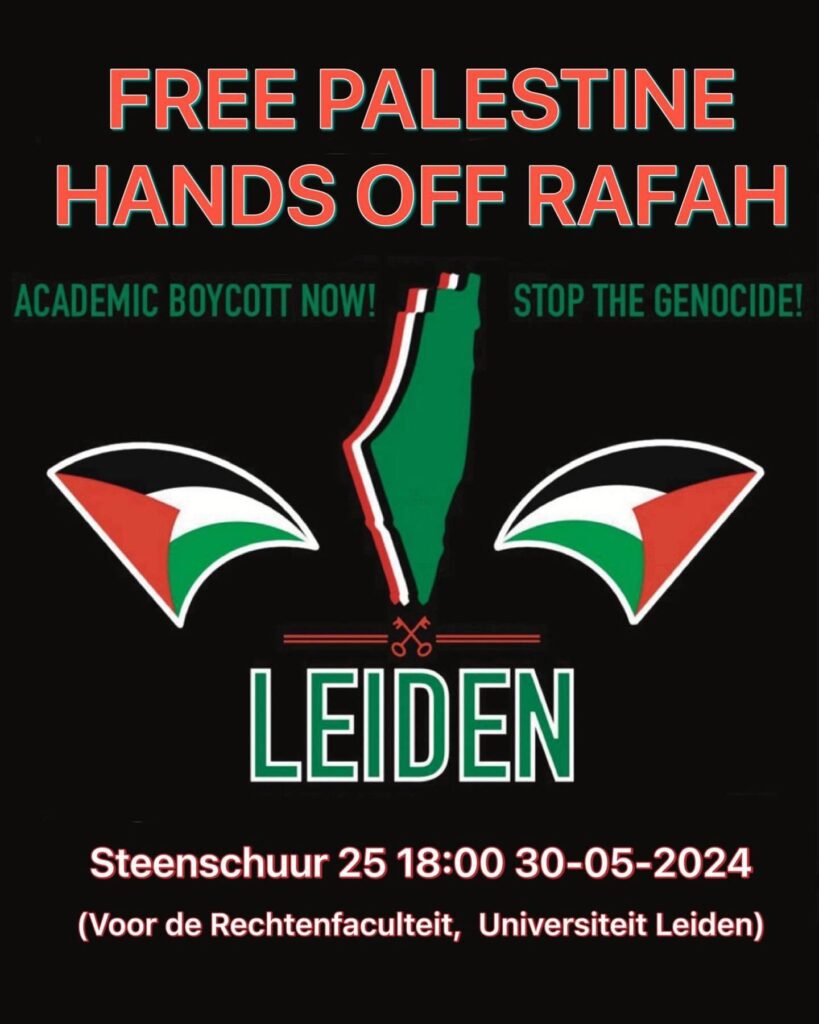Tsolin Nalbantian at Leiden University sit-in: “We have the solution: an international academic boycott of Israel”

The following is a speech given by Tsolin Nalbantian, associate professor of Modern Middle East History at Leiden University, at the sit-in organized by Leiden for Palestine that took place in front of Leiden University’s Law School Faculty on May 30, 2024.
I am really grateful to be here today – and I want to take a moment to point out the importance of this solidarity here today between Leiden community members, students, and staff of Leiden University.
Leiden University plays an important role in Leiden. Not just in its history as we are constantly reminded, but how it involves itself in the daily life in this city. It employs many of us, it educates many of us, our businesses and incomes are tied to its presence and to its successes… and to its failures.
I want to briefly talk about one such failure of the university: the indecisive position it has taken regarding institutional boycott of Israeli academic institutions called for Palestinian civil society. These universities are complicit in maintaining Israeli occupation and denial of basic Palestinian rights, whether through their silence, involvement in justifying or diverting attention from Israel’s violations of international law and human rights or their direct collaboration with state agencies in the planning and implementation of projects that contravene international law and Palestinian rights.
Perhaps when I say these things it is difficult to imagine one thing that Leiden university can do combat these crimes. But actually, it’s quite simple. And this is something I wish to stress here today. We have the solution: an international academic boycott of Israel. And don’t let people talk you into saying it’s complicated. People comment “oh, what’s happening is terrible” and that’s usually followed up with “but there’s nothing we can do”, thereby putting the responsibility of how to solve the crime upon Palestinians. And remarkably, under occupation and daily state violence, it is the Palestinian civil society that has provided the solution. And it rests upon us to take it on.

The “oh, it’s complicated” or “it’s difficult” language is simply a ruse (or a tactic) to distract you from exercising the power that we do have: we call on Leiden University, this institution that is so deeply embedded in this city and our lives, to make simple changes that uphold the very values they claim to hold dear: academic freedom and being a bastion of liberty. For example, while Leiden University has stated that study aboard schemes with Tel Aviv & Hebrew U have been put on hold, they haven’t cut ties with them. And they are only on-hold because of the safety regulations the Dutch government has placed on travel – so not because Leiden University has suddenly developed a moral compass.
Because in fact, Leiden University is already an unethical institution and behaving unethically. On May 17, it announced it will develop an “ethical assessment framework.” Don’t fall for this academise terminology. Every day, until Leiden University cuts its ties with Israeli academic institutions, Leiden University – this anchor in this city – perpetuates Israeli occupation, is complicit in the Israeli genocide against Palestinians, and continues to give a green light to Israeli state discriminatory practices, human rights abuses, and violations of international law. It is already doing this, and with each day that passes, it continues to say it is okay to do so.
And Leiden University hopes that you and I fall victim to this deceptive language and of “neutrality” and “it’s complicated.” Or when Leiden university states it is “evaluating whether our partners are involved in human rights violations or risks such as research findings being put to military use”. Because let me simplify: we already know that these universities – Tel Aviv and Hebrew U – that we have relationships with – are involved! And by continuing to have these relationships we – the greater members of the Leiden University community – we are complicit.
But I – and you – we’re not powerless. The university administrators want us to believe we are, and they try to distract us with “complications.” But really, it’s very, very simple: we demand an end to these study aboard programs and call for the boycotting of all Israeli academic institutions: meaning the cancelling of events, agreements, and projects involving Israeli academic institutions now and in the future.
We have international law on our side. What do they have? I only see blood.
Tsolin Nalbantian

